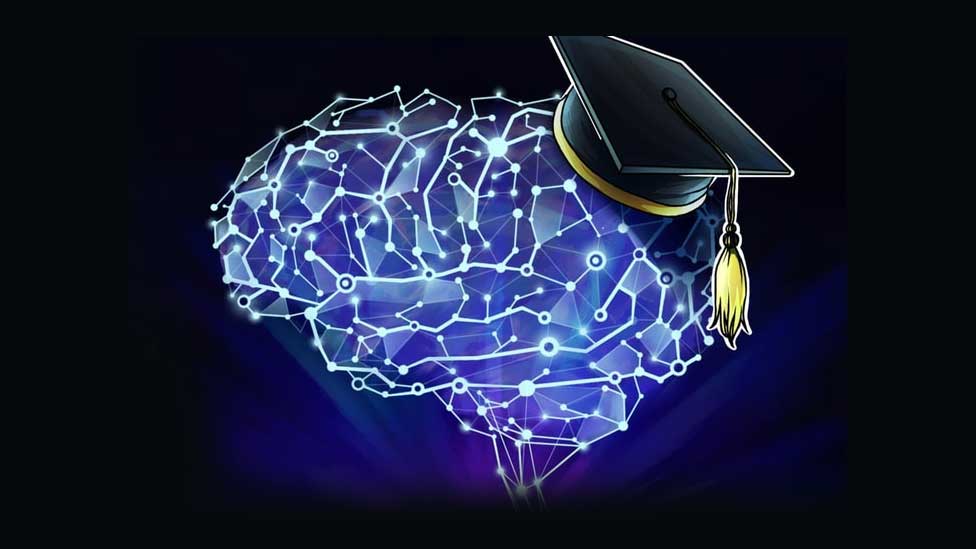Emerging technologies like artificial intelligence (AI) and blockchain are no longer just buzzwords—they are actively transforming the landscape of global education. From credential verification to content delivery, these innovations are challenging the limitations of traditional learning systems and offering students a more accessible and affordable alternative.
Redefining Learning Through Technology
Artificial intelligence is playing a growing role in how students learn, how courses are developed, and how instructors teach. At the forefront of this transformation is John von Seggern, founder of the Futureproof Music School—an online institution focused on electronic music production. Von Seggern uses AI-powered tools to structure and supplement his curriculum, helping students grasp complex concepts more easily.
But his vision doesn’t stop at course content. He plans to implement blockchain-based credentials for students who complete his programs. These digital certificates will serve as verifiable proof of educational achievement, eliminating reliance on traditional and often cumbersome accreditation processes. “I was involved in getting the accreditation for my last school, and I saw a lot of problems in that process,” von Seggern explained in an interview with Cointelegraph. “Blockchain offers a much cleaner and more efficient way to validate learning outcomes.”
The Global Shift Toward Blockchain Credentials
The movement toward blockchain in education is gaining international momentum. According to a recent report from the Organization for Economic Co-operation and Development (OECD), blockchain has the potential to revolutionize how academic records are issued, shared, and verified.
“Blockchain technology enables anyone to validate claims about an individual or institution, including their characteristics and qualifications, instantly and with a very high level of certainty,” the report noted. This eliminates the risk of forged degrees or falsified resumes, while also empowering students and professionals to take control of their own academic records. The result is a system that encourages transparency, trust, and global mobility.
Moreover, the OECD emphasized that blockchain can greatly simplify the process of transferring credits and qualifications between different countries or institutions—a task that has traditionally been complicated and slow. As more schools, universities, and training centers adopt these technologies, the way we define and prove our education is set to change fundamentally.
Why Digital Alternatives Are Gaining Popularity
The rise of AI and blockchain in education isn’t just about innovation—it’s also a response to increasing financial pressures. According to the Education Data Initiative, soaring tuition fees are pushing students to look for more cost-effective ways to gain knowledge and skills.
Digital education, especially when supported by AI and blockchain, provides an attractive alternative. Students can access personalized content, complete coursework at their own pace, and earn verifiable credentials—all without the overhead costs of traditional institutions. These models also appeal to learners in underserved regions, where quality education has often been out of reach due to geographical or economic barriers.
Innovative Projects Leading the Way
Several pioneering projects are already showcasing what the future of education could look like. Open Campus, a decentralized autonomous organization (DAO), launched EDU Chain in January—its own layer-3 blockchain designed specifically for education. The platform will host tamper-proof, on-chain records of student achievements, allowing employers and institutions to verify qualifications quickly and securely.
Meanwhile, Binance co-founder Changpeng “CZ” Zhao has introduced an ambitious new initiative: Giggle Academy. Announced during the Token2049 conference in Dubai, Giggle Academy aims to provide free education to one billion children worldwide. The platform’s curriculum is being built using generative AI, enabling rapid development of customized learning experiences for a global audience.
The Future of Education is Decentralized and Data-Driven
Analysts agree that the integration of blockchain and AI is likely to disrupt not only education but also related sectors such as healthcare and media. As more institutions experiment with these tools, the traditional education model—long bound by physical campuses and bureaucratic credentialing systems—may soon give way to a more decentralized, transparent, and student-centric system.
In a world where learning can be tailored, verified, and accessed from anywhere, the combination of blockchain and AI may finally democratize education on a global scale.




























